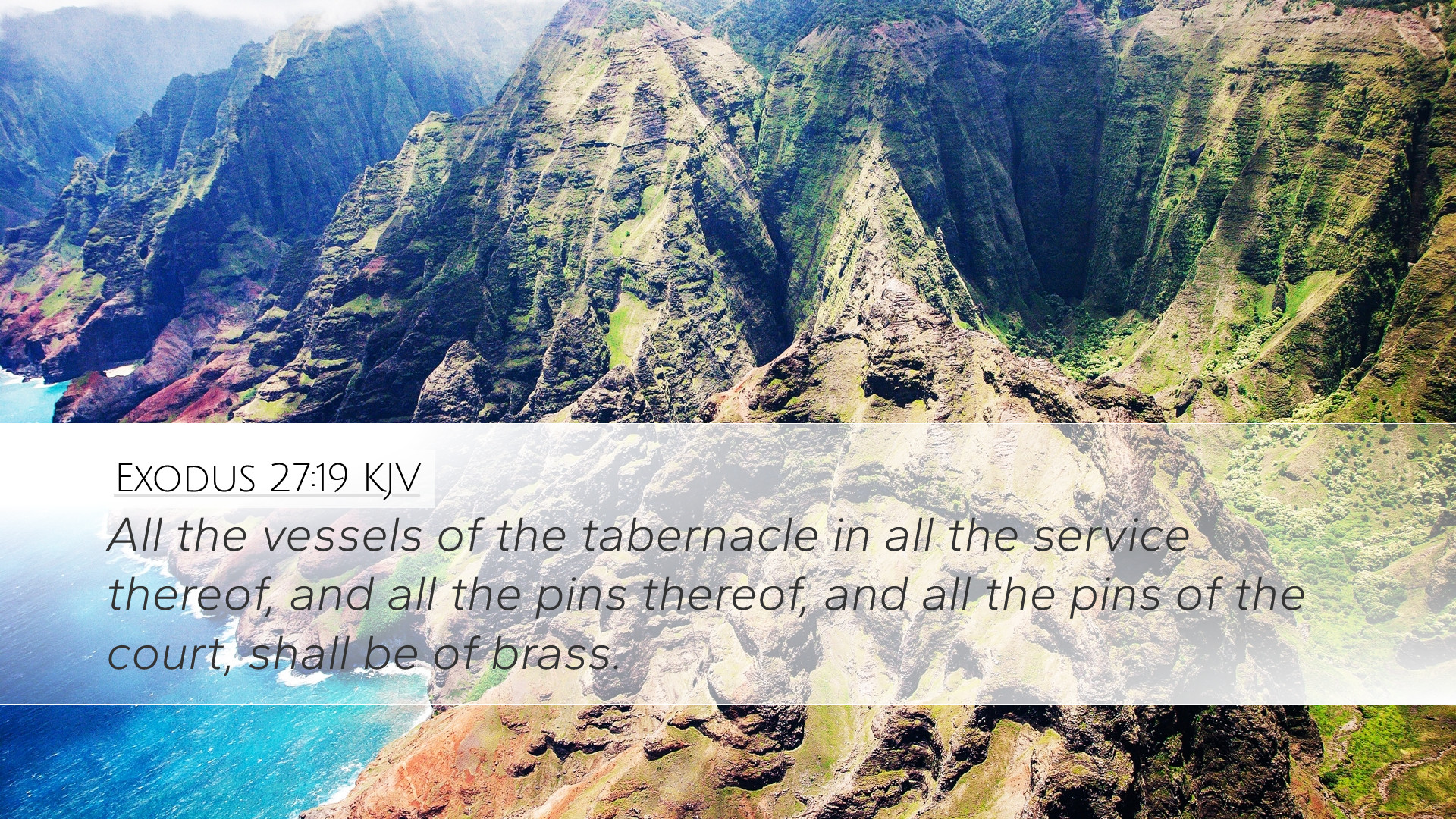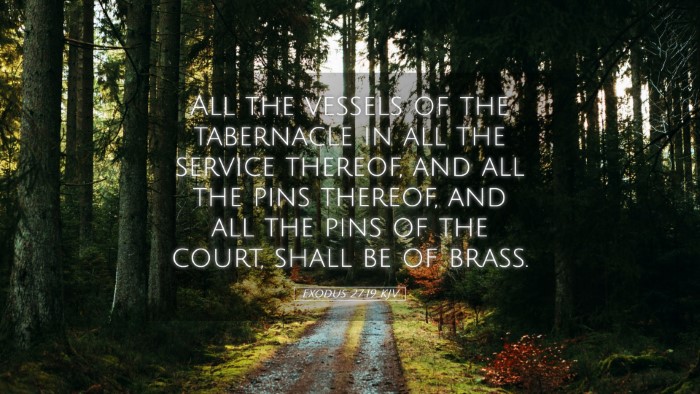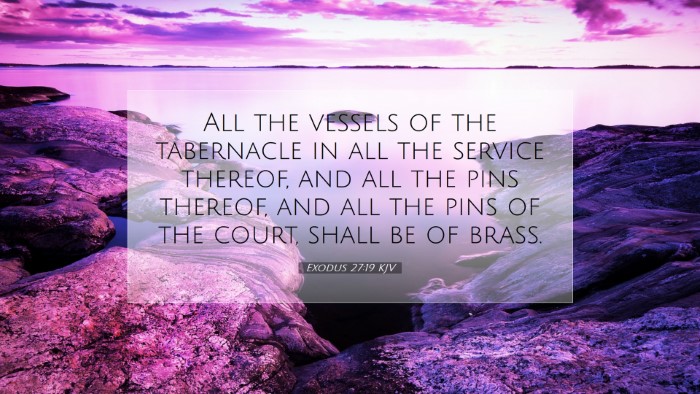Commentary on Exodus 27:19
Verse: "All the vessels of the tabernacle in all the service thereof, and all the pins thereof, shall be of brass."
Introduction
This verse emphasizes the materials used in the construction of the Tabernacle, particularly noting the use of brass. Understanding the significance of these materials offers profound insights into the spiritual and theological implications of the Tabernacle's design and purpose.
Historical Context
The Tabernacle served as a dwelling place for God among His people during their wandering in the desert. It was a pivotal element of Israelite worship, and its design and materials were divinely ordained.
Materials of the Tabernacle
-
Brass (Bronze):
Brass symbolizes strength, durability, and refinement. The choice of brass for the Tabernacle’s vessels may indicate God's intention for His presence among His people to be both protective and enduring.
-
Other Materials:
This passage complements the account found in Exodus 25-30, which details the various materials (gold, silver, and textiles) used in the Tabernacle, showcasing a rich diversity that reflects divine glory.
Theological Implications
The mention of brass in this context suggests several key theological themes:
-
God’s Presence:
The Tabernacle was to be a holy place where Heaven and Earth meet. Brass, as a strong metal, could represent the strength and permanence of God's covenant with His people.
-
Significance of Service:
Each vessel and pin plays a role in the functioning of the Tabernacle, signifying that all components of worship and service hold importance in God’s plan.
Commentary Insights
Matthew Henry
Henry emphasizes the divine specifications for the materials and construction of the Tabernacle, illustrating that God desires meticulousness in worship. Brass, being a compound metal, also suggests a unique strength that comes from unity and cooperation in the assembly of the people of God for worship.
Albert Barnes
Barnes discusses the importance of the vessels being made of brass as they would withstand the elements and the wear of pilgrimage. This durability symbolizes the enduring nature of God's covenant, standing firm against the trials and tribulations faced by His people.
Adam Clarke
Clarke notes that the context of brass within the Tabernacle could signal a requirement for purity and strength in approaching God. He draws attention to the significance of brass in other ancient Near Eastern cultures, where metalwork was often associated with divinity and worship, highlighting a broader acknowledgment of God's supremacy.
Practical Applications
The implications of Exodus 27:19 can be profound for today’s believers:
-
Worship and Tools:
Just as every vessel had a purpose, every element in our worship, our prayers, and our service is essential in giving glory to God.
-
Holiness in Service:
The materials used in the Tabernacle reflect the holiness required in approaching God, urging believers to prepare their hearts and lives for service.
-
Strength in Weakness:
The use of brass conveys that what may seem weak and flawed in our service may actually be strengthened by God's presence.
Conclusion
Exodus 27:19, while seemingly a straightforward instruction, offers rich layers of meaning. The use of brass not only signifies durability and strength but also reflects the importance of every element in worship. As scholars and pastors reflect on this verse, it serves as a reminder of the meticulous care God has for His people and the divine call to worship Him correctly and wholeheartedly.


